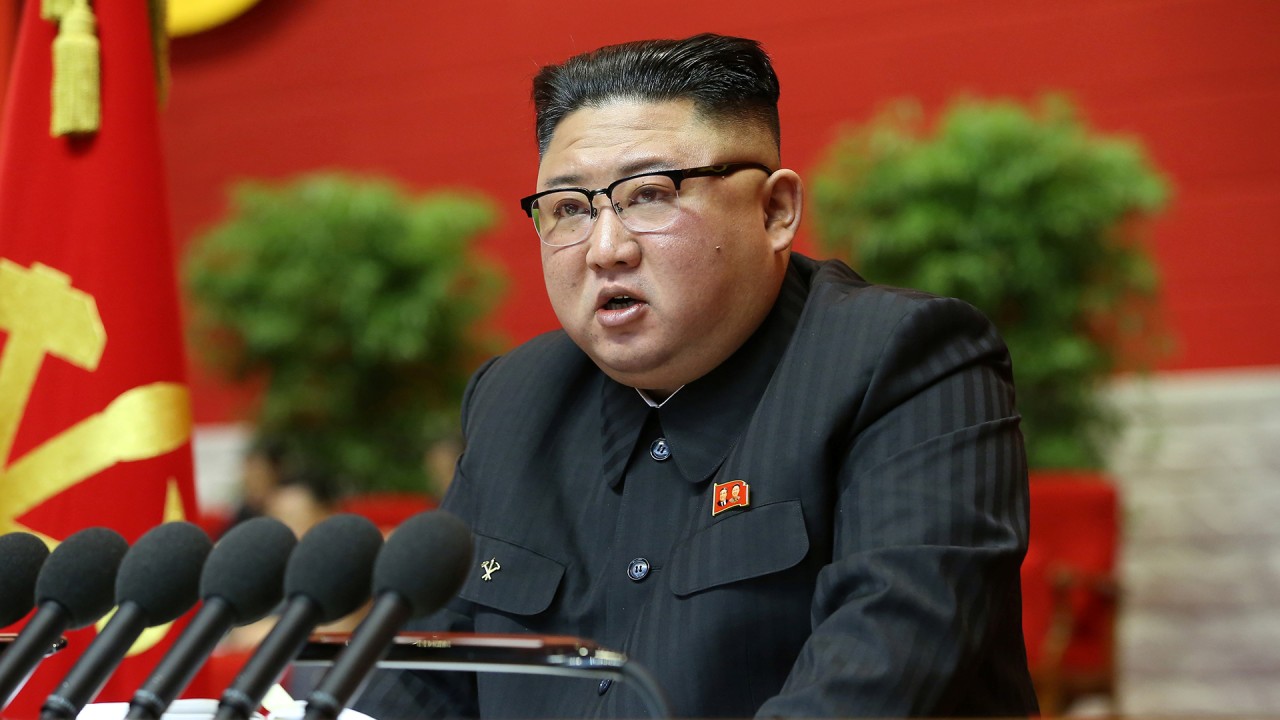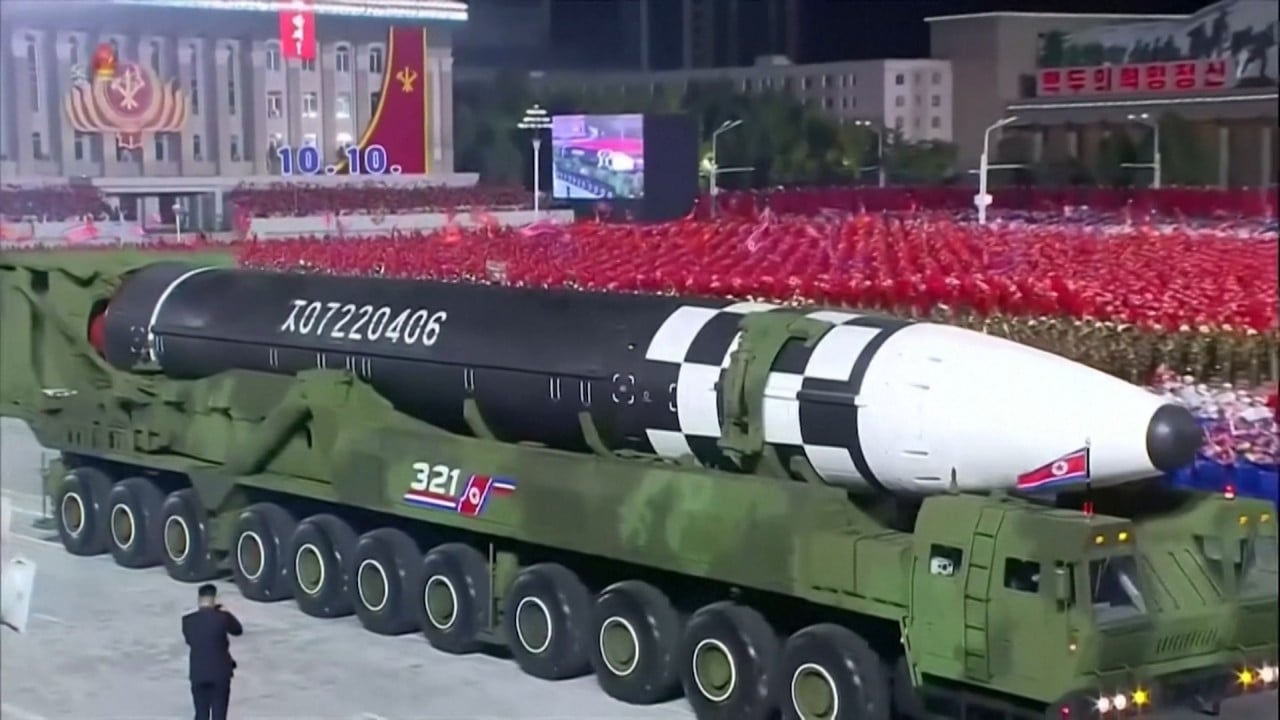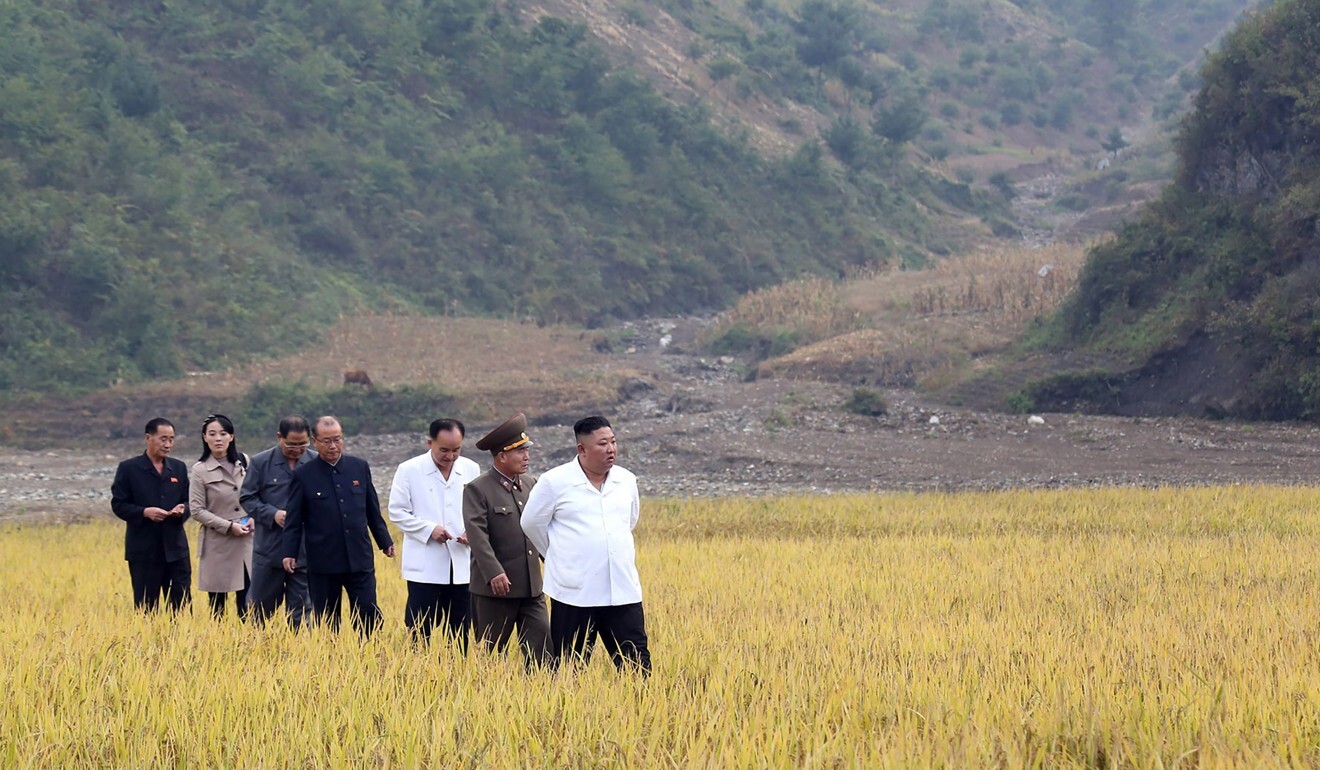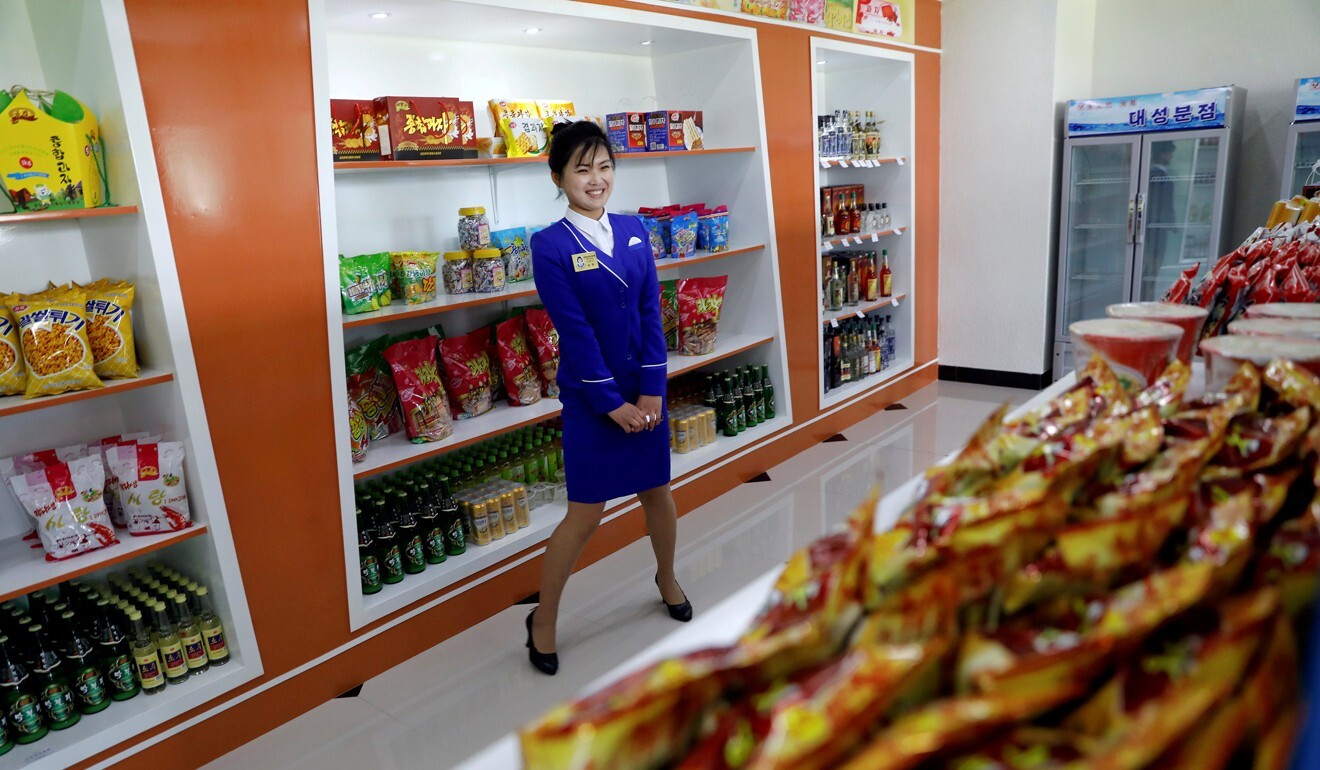
How Biden can offer Kim Jong-un a package for North Korean denuclearisation he can’t refuse
- The pandemic, coupled with sanctions, has forced Kim into a dire situation, which offers a rare chance for a breakthrough
- Biden must cooperate with other six-party talk members to craft a deal that speaks to the cost-benefit calculation of economic development in exchange for denuclearisation
The Biden administration has a genuine opportunity to achieve a landmark foreign policy agreement and establish permanent peace and stability on the Korean peninsula – by negotiating for complete, verifiable and irreversible dismantlement of North Korea’s nuclear programme, within the framework of six-party talks with South Korea, China, Russia and Japan.
North Korea’s economic bottleneck has intensified: back in August, its 2020 growth rate was projected to be minus 8.5 per cent, the worst contraction on record. Since 2017, exports have plummeted around 90 per cent, and it has incurred trade deficits of more than US$2 billion annually, which has led to the crippling depletion of its foreign currency reserves.

03:05
North Korea: Kim Jong-un admits failures in economic plan as he kicks off party congress
Based on a cost-benefit calculation optimised for the continuation of the regime, Kim must have reached the conclusion that North Korea has a better chance of economic development and survival without nuclear weapons.
US President Joe Biden can accomplish the monumental feat of denuclearisation by understanding why previous policies have failed and then offering Kim a viable exit strategy. The failure of earlier US policies stems from the underlying lack of understanding of the true nature of the North Korean nuclear weapons programme.

02:49
North Korea’s new ‘monster’ intercontinental ballistic missiles on show at military parade
To offer North Korea a tangible chance of survival, the US must accept that, despite its preponderance of economic and military might, it wields no direct influence in pushing Pyongyang to the negotiating table. Instead, the US must secure the active participation and unyielding commitment of all four of the remaining members of the six-party talks to effectively use all the sticks and carrots at hand.
Biden administration plans ‘full review’ of North Korea approach
Such a feat will require a policy consistent with the strategic interests and concerns of all stakeholders, namely that sanctions will not be used to incite regime change, denuclearisation will be accompanied by sustained peace and mutual prosperity on the Korean peninsula, and that North Korea will remain a buffer zone between US-backed South Korea and the Sino-Russian border.
To achieve the US’ overriding policy objective, Biden, together with the other four stakeholders, must offer Kim a package deal he can’t refuse – simultaneously making nuclear weapons prohibitively costly to maintain while proffering the country a distinctly better chance of survival through economic modernisation and development.
The basis of this deal must speak to the fundamental cost-benefit calculation that if North Korea is to genuinely relinquish its nuclear ambitions, something more beneficial must be offered in exchange.

The package deal should consist of two broad components. The first segment would encompass security guarantees from the stakeholder nations – peace treaties with South Korea and the US, and the reconfirmation of defence agreements with China and Russia – and North Korea’s normalisation and acceptance into the international community.
The second component would be an economic development fund financed by the stakeholder nations, which is optimally calibrated to induce market-oriented reforms. According to my calculations, US$300 billion over 10 years would be sufficient to drive North Korea’s economic development.
Modernisation, though, will need more than a mere transactional agreement; it will require the genuine transformation of North Korea into market socialism, radically revising the ruling ideology of Juche, which has been used to fortify the legitimacy of Kim Jong-un’s reign.

The rate of economic growth – at least over 10 per cent annually for a minimum of a decade – would enable North Korea to sustain and justify denuclearisation by mitigating the destabilising effects of economic opening.
A package deal, jointly ensuring the survival of Kim’s regime and denuclearisation, would fulfil the strategic interests of all stakeholder nations. This proposal is the last option for a peaceful way forward, and it remains the single best, most realistic, win-win scenario.
I urge Biden to remedy the mistakes of preceding US administrations by using this blueprint to achieve denuclearisation and the long-awaited “bright future” for North Korea.
Dr Chan Young Bang is president of KIMEP University, principal investigator at the DPRK Strategic Research Centre, and a former economic adviser to the former president of Kazakhstan Nursultan Nazarbayev

